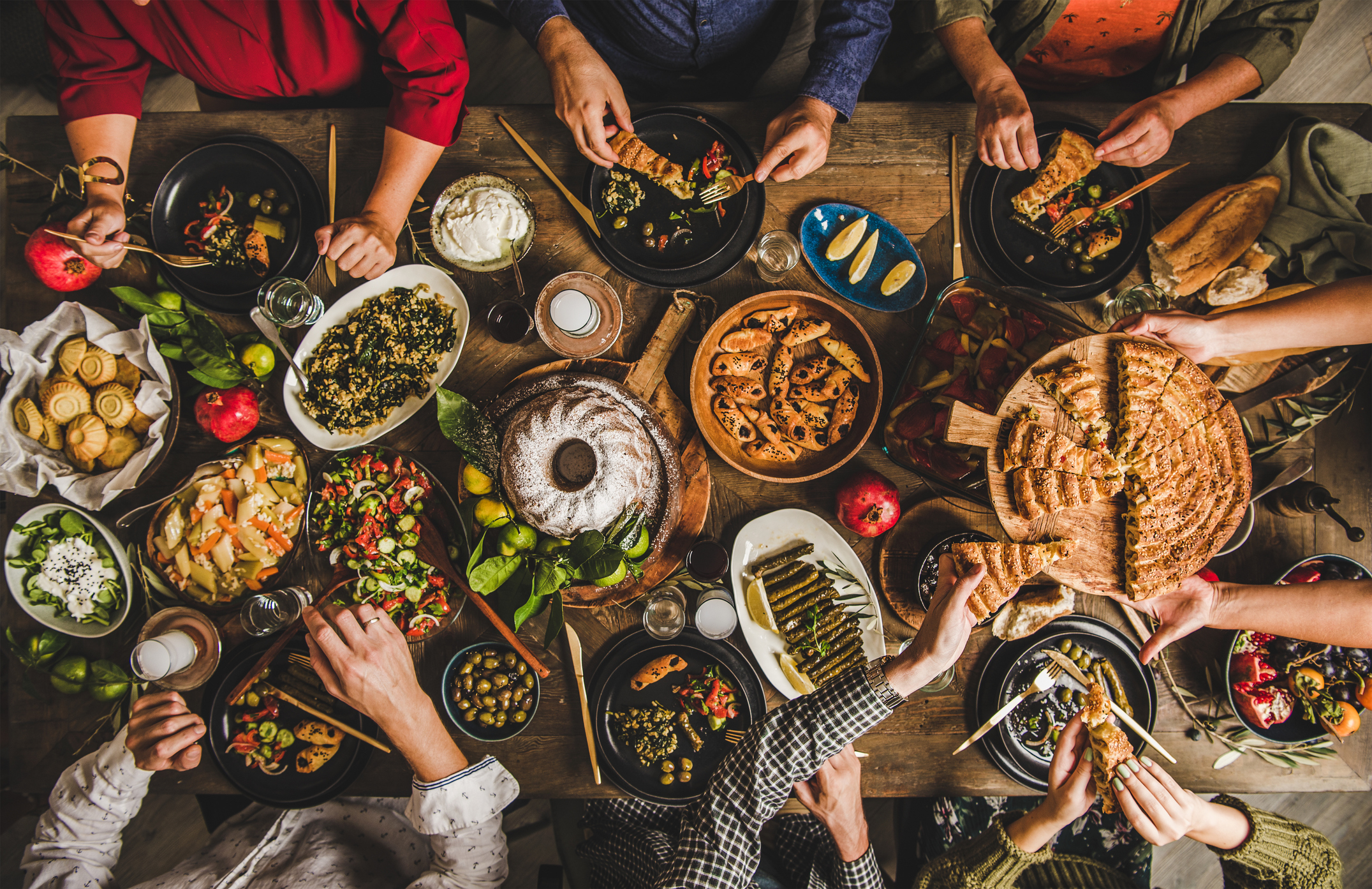Holidays often hold a mask of being the most joyful time of the year, good food, family, traditions, and social events galore; holidays can also bring in a slew of stress, pressure, depression, anxiety, and diet talk.
Holidays can lead to an increase in self-destructive behaviors and isolation.
Individuals suffering with disordered eating may feel a spotlight, sensing family members are watching eagle eyed waiting to see how you perform during the holiday dinner.
Those who struggle with restrictive eating may feel like they must make excuses for not eating and avoid foods they previously enjoyed.
Those who suffer with over-eating or binge eating may feel confused or embarrassed about how much food is on their plate, or later may engage in secret eating to make up for their restriction.
These thoughts and behaviors often take over and ruin the experience of enjoying the holidays, spending time with friends and family, and connecting with your values.
Preparing for the holidays can help prevent behaviors from escalating and relieve some pressure that could allow you to be more present and have more fun.
Tips To Help You Handle The Holidays with Disordered Eating:
Taking Care of Yourself Before the Holidays
While these tasks may feel hard, preparing ahead for shared holiday meals will help in reducing stress at the time of the event.
1. Keep as normal of a schedule as you can around food.
Many times, people will restrict the days leading up to a big mealor even skip breakfast to “make room” for later.
Restricting commonly leads to bingeing and overeating, leading to us feeling overly full and sick to our stomachs.

Read More: “An Open Letter to Those Feeling Discomfort In Their Post-Pandemic Body”
Regular meals help us listening to our hunger and fullness cues, provides us with sustainable energy, and keeps our mood more regulated and stress hormones down.
2. Identify your supports.
It is important to identify at least one, if not more, people who you can turn to if you need support or even a quick check in.
Let this person know how they can support you – give them tips on helping you cope, words of encouragement, and how to provide understanding.
3. Set and be clear with your boundaries.
Checking in with close friends and family before the holiday and letting them know your worries or concerns can be difficult but very powerful.
This is the opportunity you have to ask members to not comment on your body, the food you are eating, or anything else that may trigger negative feelings.
Family members typically want to help but do not know how, this is your opportunity to have an honest dialogue and show them how to support you.
Taking Care of Yourself During the Holidays
Whether there are traditions, religious ties, or just connecting with loved ones there are many things to focus on outside of the meal.

Read More: “What Is Mindfulness And How To Be Mindful”
1. Stay present.
If you notice you are focusing on disordered thoughts or feeling that spotlight on you, try grounding yourself or a moment of gratitude to bring you back to the present moment.
2. Use distraction and grounding.
The 5 Senses are a perfect mindfulness tool if you are in a larger group.
Notice 5 things you can see, 4 things you can touch, 3 things you can hear, 2 things you can smell, and 1 thing you can taste.
Using distraction tools like this, help to ground and refocus on the present moment and allows you to calm.
3. Practice mindful eating.
People love the holidays because it reminds them of their culture, traditions, and holiday foods.
Mindful eating is used to describe being fully attentive to your food and give us more control of our eating habits.
Try slowing down when eating, notice flavors, textures, and smells, consider where the ingredients came from and how the meal was created.
Reflecting on cultural traditions or recipes that have been passed down through friends and family can lead us to feeling connected to the experience of the food.
Taking Care of Yourself After the Holidays
This is when guilt or shame can come up, whether you feel you were not present enough or if you sense you overate, after a meal we can be left with some distressing feelings.
1. Listen to your body.
After a heavier meal your body may request needing a mindful walk or rest, either is normal.

Read More: “How Mindfulness Helps With Anxiety”
You may have to sit with some discomfort in your body but remember, this feeling will pass, there is no need to beat yourself up if you enjoyed past your fullness cues.
Also, you may even get hungry again in a few hours, this is normal and if your body is requesting food – there is a reason, listen to it.
2. Practice self-care with compassion.
Self-care is essential for getting through the holiday season.
Take a moment to reflect on what went well or what could be done differently next time to make the days easier.
For a lot of people socializing is significantly more draining than it was before COVID, take this time to rest, process, and refuel.
The most important thing you can do for yourself is to lead with self-compassion.
While you may have patterns to unlearn and wounds to heal, that takes time and cannot be undone in just one holiday.
As you progress in your own recovery from dieting, disordered behaviors, or poor body image, holidays will become easier to manage and even more enjoyable.
Seeking professional help through a therapy, registered dietitian, or medical provider can give you the support you need to live a life with the restrictions of dieting or disordered eating.
The holidays can be filled with many emotions and energy from joy and excitement to worry and stress. It is up to you to take care of yourself and your needs.



